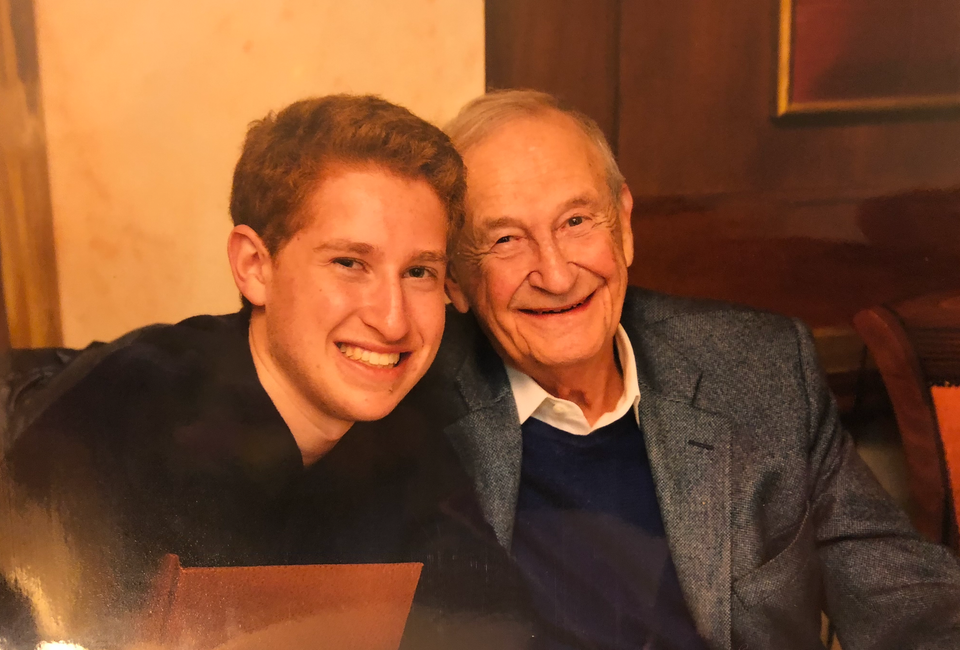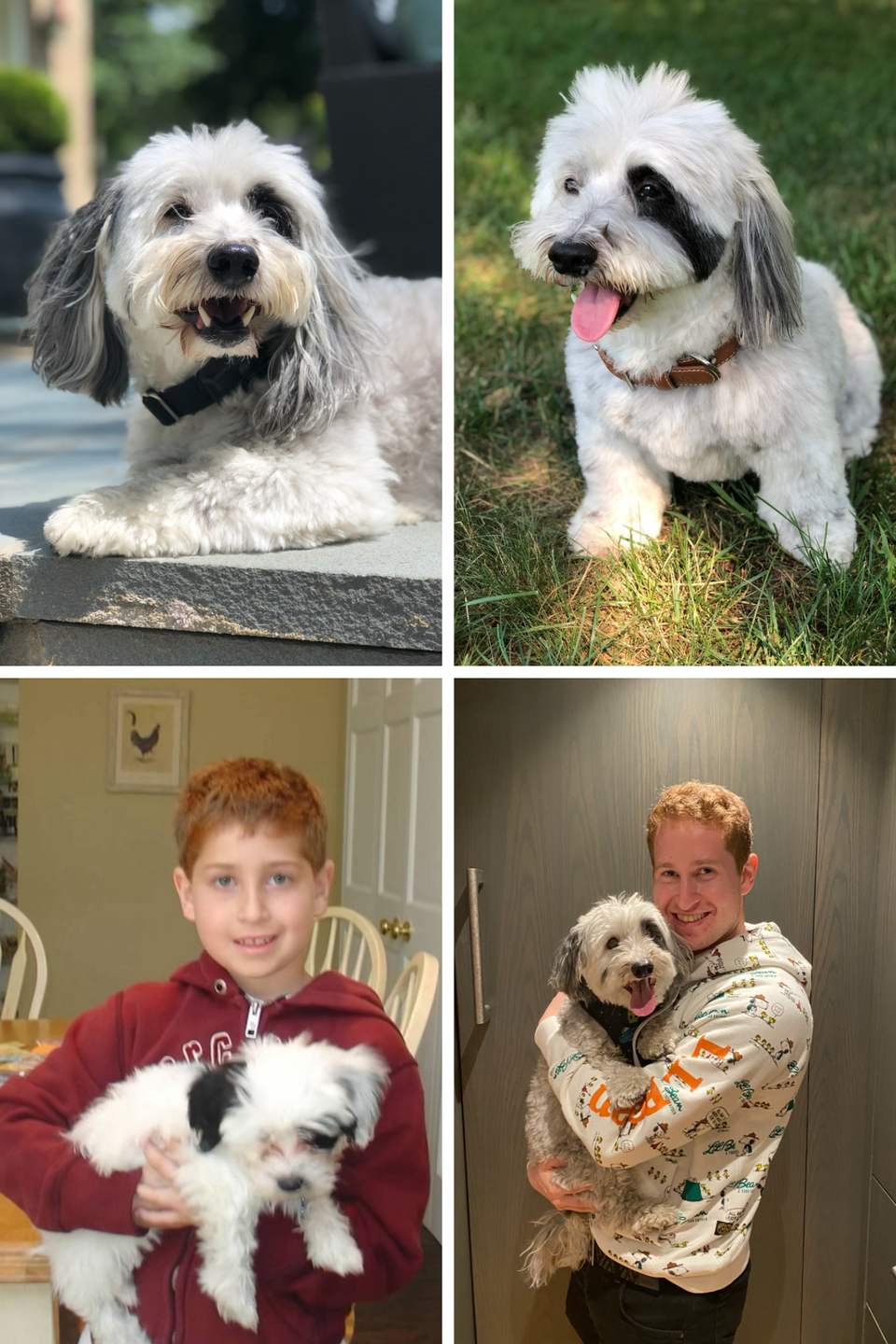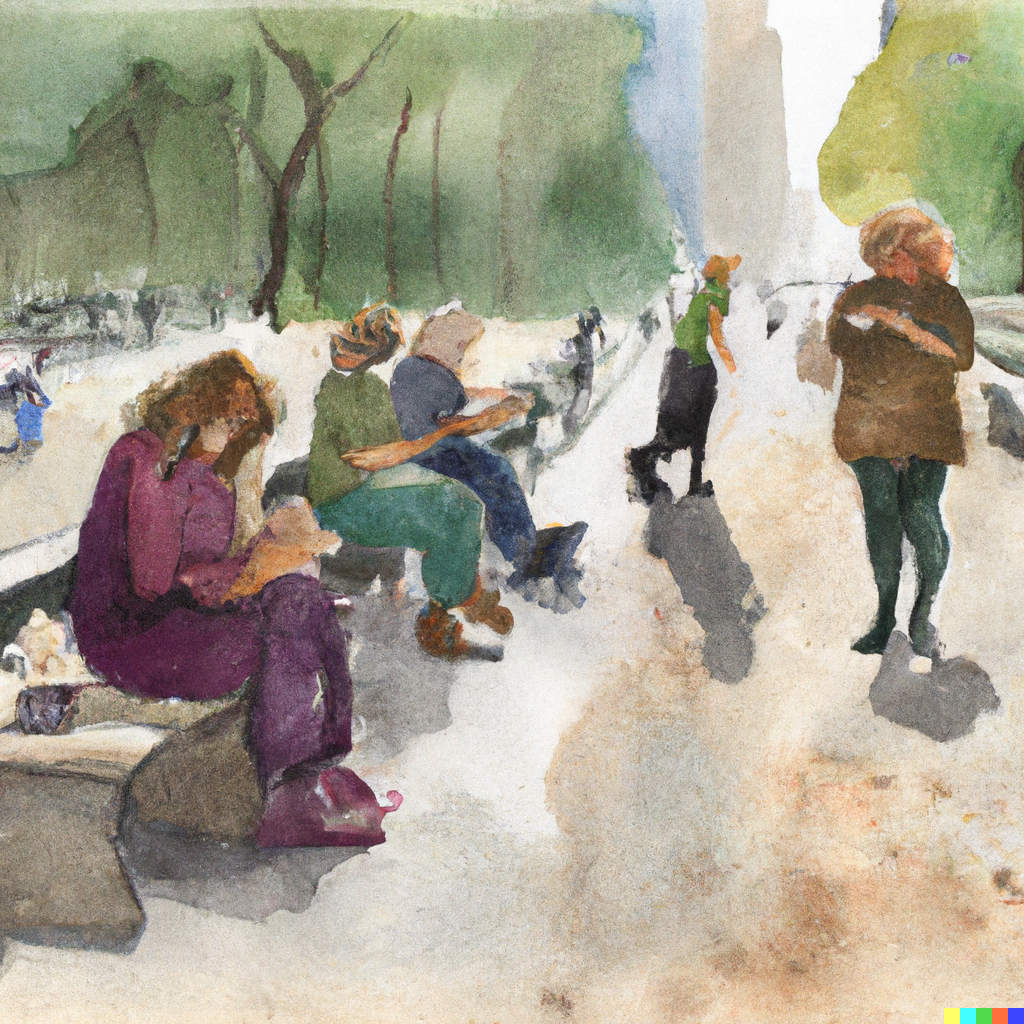I hope everyone had a wonderful holiday season and wrap to 2023. December was a great month for Footprint. We signed a late-stage investment platform with over half a million users to start with our security product. We continue to be honored by the trust placed in us by larger companies for such critical pieces of infrastructure. December also saw one of our existing security customers begin integrating us for onboarding. We think this speaks highly to why our compound suite works well together, and shows our products' ability to land + expand.
On a personal level, this month was more difficult. I got the flu the one year I didn’t get the shot, so this is my PSA to get your flu shots (and Footprint will have an hour off the first Monday of every October going forward for everyone to go get theirs :)). More deeply, my grandfather David passed away at the incredible age of 97. My Grandpa David was a confidant, supporter, and inspiration to me. His story is incredible—from his father losing everything in the Great Depression, to enlisting at 17 to fight in WWII, to building a Fortune 500 company through multiple battles with cancer. I was lucky to talk to him nearly every week for as long as I can remember. When I began to think about Footprint, I began recording some of our in-person conversations around creating a company, leadership, staying open-minded, and fortitude. The essay portion of this update is about him and those lessons, as I try to honor him by carrying on some of the virtues he embodied.
Best,
Eli
David Wachs was born in 1926 in West Philadelphia. His father ran a successful manufacturing company in Northern Liberties but closed during the Depression when the banks failed. He had to be resourceful from a young age, recruiting others to walk with him to lower school and middle school to not get beat up on account of his religion. With his mother stressing education, he was admitted to Wharton at a time when there was a quota on Jews. But in his words, by that time “the world had gone mad.” Hitler’s machine marched through Europe, and my Grandpa did not wait until age 18 to do his part. He convinced his father to sign his enlistment papers at age 17 to join the fight.
Studying Russian, he thought he would get sent to the European theater. Instead, he boarded a train set to Fort Riley Kansas and was told he’d be in the horse cavalry. Two years later, he had risen to the rank of Staff Sergeant tank commander. He was given his papers to be sent to the Pacific theater about a week before the bombs were dropped. He would later remark “I did what I was asked to do, and I hope I made some small difference. When I close my eyes, sometimes I can hear the bugles call and their shrill notes still pierce my memory. A young boy, filled with the spirit of the times, some of which has never left me.”
Back from war, David would use the $12,000 he had saved from his army and a $12,000 loan from his mom to start Charming Shoppes with one store in Norristown PA. Eventually, Charming would do over $1B of annual sales, and be a publicly listed company. He built it his own way, seeing opportunities others had glossed over. He was the first to give women charge accounts (as his words would echo until his final days, “women are smarter than men”), the first to go to the strip centers like King of Prussia Mall, and one of the first to manufacture overseas. He wanted women to have a meaningful place in the workplace, and built daycares at factory warehouses so they would not need to choose between raising a child and building their career.
While the world had perhaps gathered its mind, David still faced new threats in the form of three bouts of Cancer, including stage 4 melanoma. But he was a fighter. He beat the illness each time, and kept forging his life outside in work, family, and philanthropy. As he wrote in a letter to my cousin Adam, “A life without meaning is not worth living. You must always try to make a difference.”
By the time I entered the scene, I was not privy to the above. In my younger years, Grandpa was the loving man with the big library in which I would spend my Friday nights. That was a room where in hindsight, he helped shape my interests, my views, my ambitions, and my belief in myself. Growing up, that time in the library was what I often most looked forward to at the end of the week. When I got to go down to Grandpa’s library—a labyrinthine two-story monument to a time when people craved knowledge and challenges to their own beliefs. Grandpa taught me that history was not just a book on the Bolsheviks. Nor was it his old army coat from Fort Riley. It was a collection of events that converged. There was not a binary right or wrong. There was a perception held by one side with the facts they had, and an equally reasonable collection of beliefs that another people had grounded in their own rational reasoning.
When I was starting Footprint, I was lucky to record a series of conversations with Grandpa. Below are the lessons he taught me.
Determination
Grandpa had an indomitable spirit. He told me “A good leader is a person who sees something and has the strength to push it through despite other people saying they can’t.” Even though he reflected that you will never believe this 100%—he joked you’ll still wake up in the middle of the night at times thinking about open items—but you still believe enough to fight to create.
Grandpa built Charming through a series of decisions that others found mind-boggling. These include going to the malls like King of Prussia (KOP), giving women charge accounts, and manufacturing overseas. Two quotes from him stood out here: “Everybody I knew in Norristown told me I was nuts. And I mean guys that I knew. You’re leaving a good place and moving to KOP? What are you crazy?” And my favorite, “Everyone said you’ll go broke. Even my own lawyer. Told me good thing your father isn’t alive to see you go broke.”
When no one else believed in Grandpa, he himself did. And that was enough. It was not an irrational belief. He knew he could be wrong. But he was betting on himself, and only proving things to himself. It was not existential—he told me started it to be just one store, not 1,000. But he was determined to keep building one store at a time. Determination is not stubbornness. It is not disagreeing to disagree. Nor is it fighting a fight for the symbolism of it. To David, determination was the only option there when you believed in something—to see it through to the entire potential which you are able to imbue in it. And it was a needed ingredient once you saw something different.
Seizing and Creating Opportunity
Grandpa told me, “You are never absolutely without doubt. But…what happened to those guys who stayed in Norristown? They’re all out. Only a few have the desire to go ahead and do things. Beyond what other people think. Everybody else had the same opportunity to figure that out. They didn’t.” Grandpa realized opportunity was waiting for those willing to truly chase it, but was not solely waiting for one person.
I think Grandpa understood that opportunity was not a mythical thing on the horizon. Rather, it was open to all. But very few had his fortitude and willingness to seize it. He told me: “You’ll see things others don’t because otherwise what do they need you for? To do what everyone else is doing.”
Grandpa taught me to be uncomfortable. If you’re not making mistakes you’re not trying to do something amazing. A final quote. “Even if you’re right when everyone says you are nuts. Be strong in your conviction. If you make a mistake ok you make a mistake. [You’re] Not 100% [all of the time]. But you’re often in the right way.”
He would likely disagree with this entire section. Gracefully. And respectfully. He would attribute it all to luck. Said with that charming smile in a cocktail of humility and gratefulness. Sometimes he would admit that while some luck is our of our control, other parts of it we can create. And regardless of how he got his opportunities, he certainly took them.
Open-minded
Grandpa was unique in his willingness to consider other views before making—or updating—a decision. I still remember in high school when I tried to convince him climate change was real. He asked me to give him some reading on the topic, and so I gave him a couple hundred page PDF from the IPCC. He read it all in a week and called me to tell me climate change was not only in fact real, but also a major challenge facing humanity that must be solved. I always thought it was a win for me. In hindsight, he was the winner. He was the one who engaged with those opposing thoughts—more than I ever could at that time—to update his beliefs.
His philosophy here is perhaps best described by a quote he told me about advice. He said “But you have to decide what you know is best. You can listen to people—if you like what they say that is ok. And if you don’t like what they say that’s ok too. You have to know what you want.” In his letter sent to my cousin Adam, Grandpa remarked “most of us that were preparing for the invasion of Japan are no longer with us. They have faded away, but their banners are still held high.” His lessons will always be a part of me.
My last conversation with Grandpa was the Saturday before he passed. I told him what was new in life and with the company. He wanted to analyze all of the new deals. Hear what opportunities I was most excited about. Share in the victories, and encourage me on the road ahead. It saddens me I will not get to call Grandpa to tell him our next update. In 2021, I asked him if he liked the name Footprint. He told me: “Sure. I like the idea. But I like the fact that you are behind it. I saw it when you were debating. I was a debater too. At west philly high as a kid. My advice to you my son is to keep at it. No matter what anyone else says.” Keep at it I shall.
Product Releases from Last Month
- Rules engine V1 (ability to edit rules)
- Mobile SDK released
- Improvements to manual review experience (shortcuts, automations)
- Integration of a new data vendor on decisioning waterfall (Lexis)
- Labels API V1 (allow customers to label whether or not onboarded users ended up being “good” or “bad” actors).
- Improvements to our CIP conversion: help end-users provide less address and SSN verification via documents like bank statements and W2’s.
Where we could use help—Recruiting
- Web engineer with mobile SDK experience
- Ops with compliance background. I do feel that we are now ready for our first ops hire. This year we want to get approval in each state where sports betting is legal (currently 22) and build out our compliance automation tools for partner bank CIP monitoring. I think an ideal profile here would be someone either coming from a GeoComply-type company but am open to ideas here!
Where we could use help—Customer Intros
- Car rental marketplaces/Auto
- Finn, Getaway, Sixt, Drivetime, Hertz
- Investment Platforms
- Stash, WeBull, WeFunder
- Apartment Rental Marketplaces
- Apartments.com, Rently, Rentprep/Roofstock
- Large Auto Dealers
- Examples: Lithia, Autonation, Penske Group1 or Tekion
- Other: Fintech
- Carefull, Possible Finance, Stockpile, Remitly
- Other: Marketplace
- Outdoorsy, RvShare
Other
- Footprint was featured by Why You Should Join as one of five startups to look out for in Q1 2024





